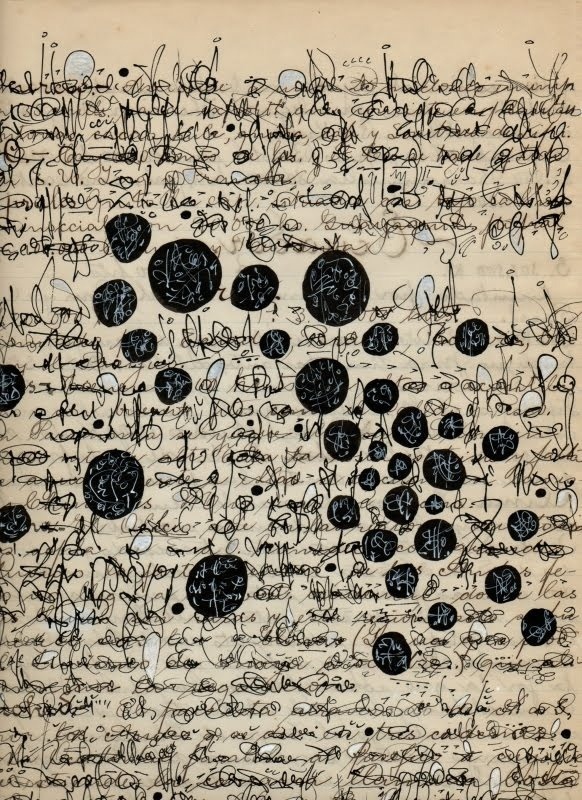by skynecta (via https://instagram.com/p/-TFX8sDL_y/)

by skynecta (via https://instagram.com/p/-TFX8sDL_y/)

by skynecta (via https://instagram.com/p/-TFX8sDL_y/)

no.702 by lee jin woo (Republic of Korea) (via http://flic.kr/p/uWeBHi )

no.756 by lee jin woo (Republic of Korea) (via http://flic.kr/p/ACQWYA )

no.757 by lee jin woo (Republic of Korea) (via http://flic.kr/p/zLdR8R )


On Oct. 12-13, 2015, NASA astronaut Scott Kelly took a series of seventeen photographs from the International Space Station during a single flyover of Australia. This first photo of the series was posted with the caption, “#EarthArt in one pass over the #Australian continent. Picture 1 of 17. #YearInSpace”. (NASA)

Stone lines by _cameronsinclair_ (via https://instagram.com/p/-Q0OdeDQ2t/)

Choral Field 9 (detail) by Emma McNally1 (via http://flic.kr/p/AZ56HH )



The Diavik Diamond Mine is located on the Lac de Gras lake in the Northwest Territories of Canada, 120 miles (193km) south of the Arctic Circle. The mine produces approximately 7.5 million carats of diamonds each year. In standard weight, that’s an annual output of 1500 kilograms or 3,300 pounds. In this Overview, the most distinguishable areas of the facility are its two primary open pits, waste ponds, processing facilities, and an airstrip capable of landing aircraft as large as 737s and C-130s.
64.496111100°, -110.273333300°

{2o13} the induction of sleep
“Key to the success of the spycam missions are the animatronic cameras cleverly disguised as lifesize penguins which can silently infiltrate the colonies to record the penguins’ often emotional, and sometimes amusing, behaviour.“

by (Jt) (via http://flic.kr/p/hiDqRA )

Burbank, Ca by Rinzi Ruiz [street zen] (via http://flic.kr/p/rSZd26 )

1042200 by Natan Vance (via http://flic.kr/p/AzEETx )


(via http://flic.kr/p/Bcczmy )

(via http://flic.kr/p/Azs4GA )

Brussels (via http://flic.kr/p/BdqwmB )

_ (via http://flic.kr/p/Azs2Go )

Requista #2 by 7erence (via http://flic.kr/p/f7osZm )

Pinisi Boat by Hengki Koentjoro (via http://flic.kr/p/B83Mfj )

stillness (via http://flic.kr/p/Aviun9 )

stillness (via http://flic.kr/p/AvittL )

stillness (via http://flic.kr/p/B6YoQd )

stillness (via http://flic.kr/p/Bag8K6 )

stillness (via http://flic.kr/p/Bag7yZ )

stillness (via http://flic.kr/p/B8573d )

stillness (via http://flic.kr/p/AviBUH )

stillness (via http://flic.kr/p/B9gLvv )

stillness (via http://flic.kr/p/Bag3gR )

stillness (via http://flic.kr/p/AcnSgV )

Celebrating rebirth by europeanspaceagency (via http://flic.kr/p/AmDSSX )

A supermassive black hole in action by europeanspaceagency (via http://flic.kr/p/B6GgyS )


ant by chriswoebken (via http://flic.kr/p/4pj1h1 )

GENERAL DYNAMICS (Astronautics) SPACE CARDS by Unkee E. (via http://flic.kr/p/by7up8 )

#308 The Oblong Box 2/3 by mugwump (via http://flic.kr/p/zKdo9C )

#312 by mugwump (via http://flic.kr/p/zUUnp7 )

Miniature by Jorge Daniel Segura (via http://flic.kr/p/96S1Pz )

by Fernan Federici (via http://flic.kr/p/ATnLwh )


Do-it-yourself CRISPR genome editing kits bring genetic engineering to your kitchen bench
CRISPR genome editing is one of the most significant, world-changing technologies of our era, allowing scientists to make incredibly precise cut n’ paste edits to the DNA of living organisms.

Palimpsest Asemic Correspondence by Cecil Touchon
Ink on antique (1920’s) Mexican Geography Journal
“As if responding to Leibniz—who once wrote that music is an “occult exercise in mathematics performed by a mind unconscious of the fact that it is counting”—Nietzsche pointed out that in areas like art, quantitative measures are simply inappropriate. “Assuming that one estimated the value of a piece of music according to how much of it could be counted, calculated, and expressed in formulas: how absurd would such a ‘scientific’ estimation of music be! What would one have comprehended, understood, grasped of it? Nothing, really nothing of what is ‘music’ in it!” he wrote.”
– Morozov, Evgeny. To Save Everything, Click Here: Technology, Solutionism and the Urge to Fix Problems That Don’t Exist. London: Allen Lane, 2013. (viacarvalhais)

stillness (via http://flic.kr/p/B4G8fE )

stillness (via http://flic.kr/p/Aa4UcB )

_DSC8069 by aki*3 (via http://flic.kr/p/A9EQow )

_DSC7594 by aki*3 (via http://flic.kr/p/B7wK6e )

Tattoo Convention BXL2015©Frederik De Wilde-1-6 by frederik_de_wilde (via http://flic.kr/p/B5aMUD )

by hrdya samudra (via http://flic.kr/p/AZcCSY )

leaving mars by lars on mars (via http://flic.kr/p/AuGBiK )

201501111 (via http://flic.kr/p/B6qa9t )

201501110 (via http://flic.kr/p/A9wpXH )

201501109 (via http://flic.kr/p/AsrYpy )

201501108 (via http://flic.kr/p/B7pe9p )

Fractals - Dendrus Tenement Combined Transits by Allan1952 (via http://flic.kr/p/Aqz2ak )

by Apia.Lawreen (via http://flic.kr/p/AqChNu )
- Rule 1: Always have an escape plan
- Rule 2: Never get caught.
- Rule 3: Be aware of your surroundings.
- Rule 4: Always have a backup plan.
- Rule 5: Assumption is the mother of all fuckups.
- Rule 6: Trust your gut.
- Rule 7: Simple and light equals freedom, agility and mobility.
- Rule 8: KISS: Keep it simple, stupid.
- Rule 9: The solution is in the problem.
- Rule 10: Don’t become predictable.
- Rule 11: Never take the elevator.
- Rule 12: Act, don’t react.


Detail of one of Anj Smith’s new paintings ‘Faune’ (2015) which is part of her solo show 'Phosphor on the Palms’ @hauserwirth 23 Savile Row in London. It runs until 21 November. by frieze_magazine (via https://instagram.com/p/-B0-1HygOt/)


Ruigh na Traghad by Mark Rowell (via http://flic.kr/p/zTQvjA )

by (x)99. (via http://flic.kr/p/AovZ7R )

_ (via http://flic.kr/p/B29USB )

Singapore 1925-2025, Robert Zhao Renhui.

Gedhun Choekyi Nyima
On May 14, 1995, six-year-old Tibetan Gedhun Choekyi Nyima was named the 11th Panchen Lama by the 14th Dalai Lama. After his selection, he was detained by Chinese authorities; he has not been seen in public since May 17, 1995. China later named another child, Gyancain Norbu, as Panchen Lama, a choice that exiles claim is rejected by most Tibetan Buddhists.
China by aiww (via https://instagram.com/p/9_MpZqqDyq/)

The volcano series, 2012 Iceland. by studioolafureliasson (via https://instagram.com/p/9_Yr6ArRPQ/)

_ (via http://flic.kr/p/AHifBy )

_ (via http://flic.kr/p/AX5iru )

Izima Kaoru - Toyosu, Tokyo, Summer Solstice, 2009


by (ToT) Auriea (via http://flic.kr/p/fseaks )

IP(1) by Emma McNally1 (via http://flic.kr/p/AZ56HH )

201501107 (via http://flic.kr/p/AYSj6n )

201501105 (via http://flic.kr/p/AYSf44 )

201501104 (via http://flic.kr/p/AjVebw )

201501103 (via http://flic.kr/p/AnecS2 )

201501102 (via http://flic.kr/p/A1RpDY )

201501101 (via http://flic.kr/p/AFguqG )

filming_in_sint-baafs by (ToT) Auriea (via http://flic.kr/p/AVouKs )

_R158927.jpg by 林官賢 (via http://flic.kr/p/AjwTv2 )

At the City Museum by cuboctahedron (via http://flic.kr/p/AU9ZUJ )

Paul by cuboctahedron (via http://flic.kr/p/AWgrJK )

Istanbul Trip, 2015 by cuboctahedron (via http://flic.kr/p/zXDEua )

Local businesses in Crickhowell are turning the tables on the likes of Google and Starbucks by employing the same accountancy practices used by the world’s biggest companies, to move their entire town “offshore”. Advised by experts and followed by a BBC crew, family-run shops in the Brecon Beacons town have submitted their own DIY tax plan to HMRC, copying the offshore arrangements used by global brands which pay little or no corporation tax.

_0098680 by aki*3 (via http://flic.kr/p/zZBmwD )

woman on a sofa #17 by chrisfriel (via http://flic.kr/p/AEvRfA )

_ (via http://flic.kr/p/AVUF1X )

Cloud vortices by NASA Goddard Photo and Video (via http://flic.kr/p/Ak3wqQ )

Mars’ Moon Phobos is Slowly Falling Apart by NASA Goddard Photo and Video (via http://flic.kr/p/Ak59wz )

(via http://flic.kr/p/AVs9Qt )

(via http://flic.kr/p/Ahu1cM )

_-2 (via http://flic.kr/p/AWr7K8 )

_ (via http://flic.kr/p/AT9YeA )

Russell Haswell (via http://flic.kr/p/Ahf8ou )

Yasunao Tone (via http://flic.kr/p/AWc2nn )

(via http://flic.kr/p/AU28Tw )

QUAD SURROUND (via http://flic.kr/p/zYjpK2 )